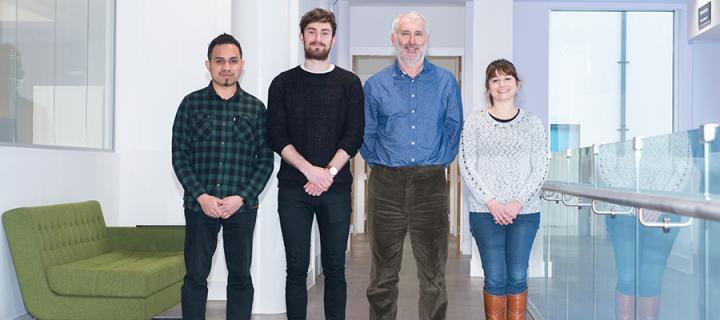Sarcoma UK award leads to breakthrough
August 2017: A small research grant has enabled big advances in the treatment of rare bone tumours.

A £7,385 award from Sarcoma UK, a cancer charity that focuses on bone and soft tissue cancers, has enabled Professor Donald Salter and his research group at the Centre for Genomic and Experimental Medicine (CGEM) to run a successful pilot study testing the viability of using magnetic hyperthermia to treat solid tumours.
Magnetic nanoparticles (MNPs) can be introduced into cells, or, with the help of genetic engineering, cells can be coaxed to make their own MNPs. When these particles, made of iron, are exposed to alternating magnetic fields, heat is generated, cooking the tumour cells from the inside but leaving nearby healthy cells intact.
Professor Salter’s group tested whether mesenchymal stem cells, which are “template” cells that can become specialised bone or cartilage cells, grown alone or alongside sarcoma cells were susceptible to magnetic hyperthermia therapy. They found that around 50% of the stem cells engineered to produce MNPs died when they were exposed to an alternating magnetic field, as did 50% of the sarcoma cells surrounding these. Cells without any MNPs that were exposed to magnetic fields were unaffected, indicating that this could be developed into a viable sarcoma treatment.
Some challenges still need to be overcome before this research can be brought to the clinic. For example, the process of delivering MNPs into cells, or getting the cells to create their own MNPs, needs to be improved. Additionally, significant technological developments are required to enable the accurate targeting of alternating magnetic fields of the correct frequency to the tumour site.
However, once these challenges have been overcome, magnetic hyperthermia may become a viable and significantly less toxic alternative to current sarcoma treatments. Consequently, the study has obtained £25,000 further funding from the Jamie King Urological Cancer Research Fund to continue developing this therapy.


